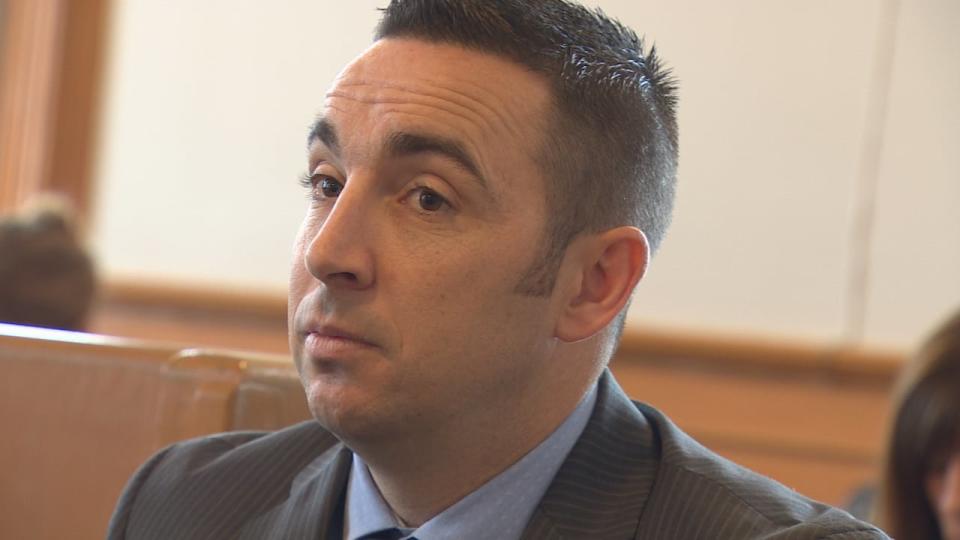
Ashley MacDonald says she was shocked when she heard Doug Snelgrove, a former Royal Newfoundland Constabulary constable convicted of sexual assault, had been released on parole. (Paula Gale/CBC)
The release of former police officer Doug Snelgrove on parole has left survivors of sexual assault feeling frustrated, says a St. John’s advocate.
Ashley MacDonald says the release of former Royal Newfoundland Constabulary constable Snelgrove, after he’d served only a quarter of his sentence for the rape of a civilian woman known only as Jane Doe, sends the wrong message to survivors and the public.
“I think that there’s definitely a question about what the justice system looks like,” said MacDonald, a survivor herself. If someone is found guilty of a crime, she said, they’re supposed to serve the sentence they’ve been given.
“This incarceration is the answer here. And then the person doesn’t get incarcerated. There’s just, like, a feeling of like, what’s the point?” said MacDonald
“Why 10 years — or almost 10 years — of going through this for there to not actually be a sentence?”
Snelgrove, whose parole was originally scheduled for next summer, had about 11 months remaining on his custodial sentence.
LISTEN | MacDonald says she was shocked to learn Snelgrove was already out on parole:
MacDonald, who organized a campaign that sent messages of support to Jane Doe during one of Snelgrove’s trials, said she’s heard from many people who are disappointed by his release.
“A lot of people feel really angry,” she said. “A lot of surprise and shock.”
His release felt all the more early, she added, since it came soon after the news that the Supreme Court of Canada had declined to hear his appeal in February.
“This just felt like it was so fast. How could it possibly be this quick?” asked MacDonald.


Snelgrove is serving the rest of his four-year sentence at his St. John’s home on parole. (Glenn Payette/CBC)
When Snelgrove was convicted in 2021, MacDonald told CBC News at the time the guilty verdict prompted a “collective sigh” of relief.
“I think a lot of survivors kind of took it as a, like, as a positive sign. It’s a step forward,” MacDonald told CBC News on Monday.
His release on parole feels like a step backward, she said.
“So you got the guilty verdict. All the appeals have now been turned down and OK, now you go on to do a sentence,” she said.
“But you’re not doing the sentence.… You’re not actually serving the time.”
MacDonald said it feels like justice isn’t complete.
“If you’re looking at this and you see, ‘OK, yeah, guilty.’ And then you’re out in a few months — where is the deterrent? Where is the desire for change?”
In the parole decision, Snelgrove was described as a model prisoner who kept active.
“Your levels of accountability, motivation and reintegration potential are rated as high. You are considered to be engaged in your correctional plan,” board members wrote.
MacDonald said she found the parole board’s comments concerning because she hasn’t heard Snelgrove accept accountability for his actions.
Janet Lee, co-ordinator of the Journey Project — which helps survivors of sexual violence navigate the legal system — said the criminal justice system doesn’t always align with accountability and survivors’ healing, she said.
“The anger, frustration, and despair we are hearing related to this case and to so many other cases of sexual violence is valid,” Lee wrote in an email to CBC News.
“The criminal legal system has rarely been able to adequately meet the dynamic needs of survivors as it was never made to do so.”
When survivors of sexual violence are denied justice and healing, Lee added, it hurts everyone.
Download our free CBC News app to sign up for push alerts for CBC Newfoundland and Labrador. Click here to visit our landing page.

